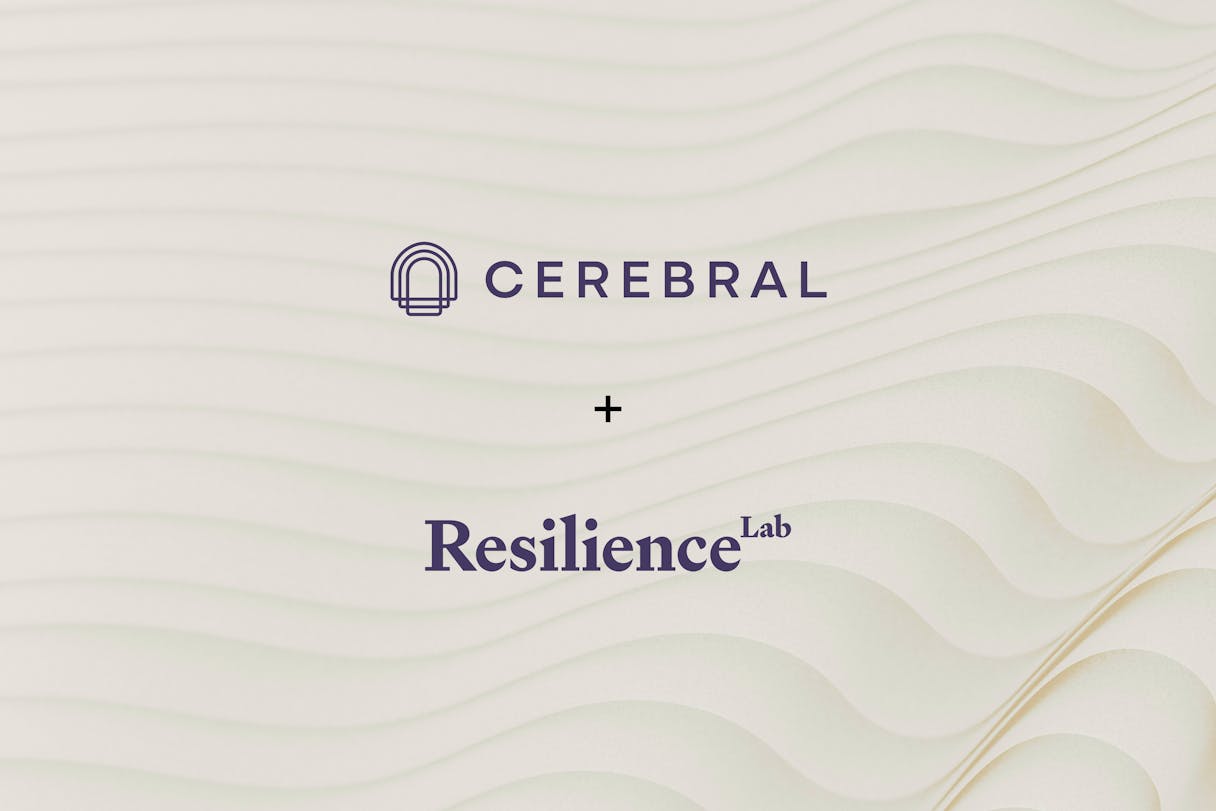Digital tools are in Cerebral’s DNA. We’re an online service after all, connecting thousands of patients daily with providers, therapists, and care counselors via video calls, online messaging, email, and text. There's a lot going on. That’s why we couldn’t be more excited to announce that you can now access the full Cerebral experience with our new mobile app!
Since our launch, Cerebral has been available to members who want (or need) to manage their mental health from the comfort of home. Less than half of Americans who need mental health care actually receive it. We’ve been working tirelessly to change that. But we always knew we could make it even easier.
It’s probably no surprise that the majority of interaction on the internet takes place on mobile devices. Sometimes you’re on the road, or you don’t feel like sitting in front of a computer, or maybe you just want a light and easy experience. At Cerebral, we want to be available for you, wherever you may be.
Accessibility, care coordination, and trust are all vital to a successful and ongoing mental health routine. With the Cerebral app, you can easily get all three. Access your account, manage your mental health treatment, and connect with your care team on your Apple or Android device. It’s like having a full mental health team on call all the time.
Whether you’re a Cerebral member or someone looking into starting your membership, here’s what you’ll want to know about the new Cerebral mobile app.
Video sessions from anywhere
You’ve always been able to connect with your care team anywhere you could take your computer. Now, you can do the same from your mobile device!
If you’ve never used Cerebral before, you can use your mobile device to connect with a therapist and/or a licensed provider. They'll go over your symptoms and develop a treatment plan. After the first video chats (done on your schedule), you’ll have ongoing sessions with your care team.
Use the app to connect at your convenience. You can discuss your progress and learn new skills, like mindfulness. And you’ll never have to worry about missing appointments.
Manage your account and prescriptions
If your provider prescribes medication, we’ll deliver them straight to your door in just a few days! There’s no additional cost for delivery, and you can connect with your provider anytime to discuss how your medication treatment is going.
And with the app, you can access your account dashboard to manage your prescriptions, check your prescription status, and make any other changes you need to your account.
You can also book all your appointments from the app, and of course use your device to send unlimited messages to your care team.
Assessments from anywhere
Another important part of your ongoing mental health care is completing regular assessments. With the app, you can complete your assessments from anywhere. We’ll help you measure how you’re feeling over time and share that information with your care team, who will provide regular, evidence-based feedback on how you’re progressing.
So. Are you ready to download the app for your mobile device and get started? Find it now in the App Store or Google Play!

Our Care: The Resilience Methodology

A New Era of Mental Healthcare: How Cerebral Is Expanding High-Quality, Personalized Care

Cerebral Partners with San Antonio Spurs

Call 911 if you’re having a
mental health emergency
Text Home to 741-741 if you're in emotional
distress and need immediate support
Call or text 988 Suicide &
Crisis Lifeline. Chat service
is available at 988lifeline.org.